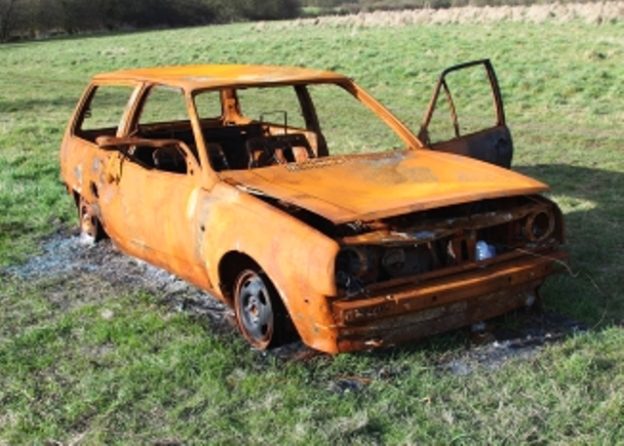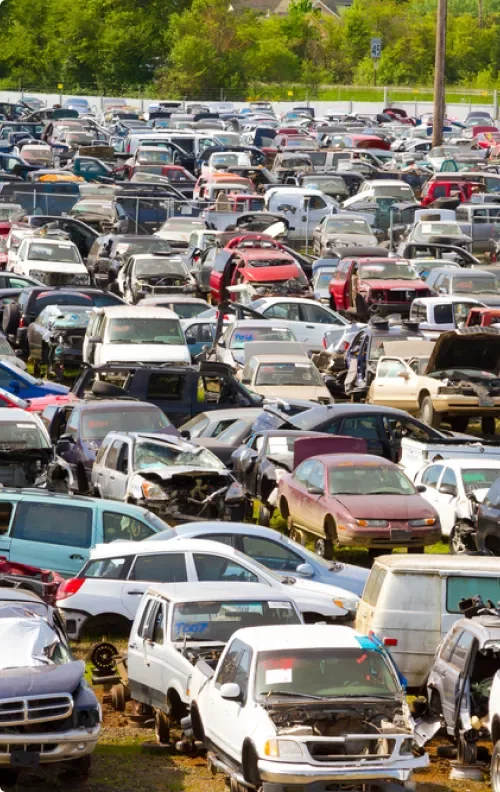The Economic and Ecological Benefits of Recycling Scrap Cars And Trucks
Recycling scrap cars presents various financial and ecological benefits that expand well past waste decrease. These benefits emphasize the complex worth of reusing scrap cars, yet there are further facets to think about when assessing its full effect.
Reducing Garbage Dump Waste
Minimizing landfill waste through the recycling of scrap autos plays an essential duty in ecological preservation. Effective reusing processes can significantly reduce the quantity of waste that ends up in land fills when automobiles get to the end of their life cycle. Scrap automobiles, if not effectively recycled, add to the expanding problem of land fill overcapacity, aggravating ecological deterioration and possibly infecting soil and groundwater with unsafe substances such as oil, gas, and heavy metals.

Furthermore, the recycling process reduces the negative results of vehicle waste on biodiversity. Garbage dumps are notorious for interfering with local environments, and reducing the increase of scrap autos aids protect natural environments. Eventually, recycling scrap automobiles is a critical method that promotes lasting waste administration, straightening with wider environmental objectives.
Conserving Natural Resources
Along with mitigating garbage dump overcapacity, recycling scrap autos plays a significant duty in preserving natural deposits. The automotive market is greatly reliant on different metals, plastics, and other materials that need considerable mining and processing. By recycling scrap autos, we significantly reduce the demand for raw products, thus curbing the ecological destruction related to mining activities. As an example, recycling steel from old lorries reduces the necessity for iron ore removal, which consequently decreases energy usage and greenhouse gas exhausts.
In addition, the process of reusing vehicle parts such as lead, aluminum, and copper is much much less energy-intensive than producing these materials from virgin sources. This energy savings equates directly right into minimized nonrenewable fuel source intake and lower carbon footprints (we buy junk cars Denver). Additionally, by redeeming and repurposing products, we expand the lifecycle of non-renewable resources, guaranteeing they stay readily available for future usage
Additionally, recycling automobile liquids like transmission, oil, and antifreeze fluid prevents hazardous compounds from infecting dirt and water resources. Via systematic recycling initiatives, these fluids can be detoxified and reused, promoting a round economic climate and additional lessening the strain on natural sources. Therefore, reusing junk automobiles uses a diverse method to preserving our world's indispensable all-natural possessions.
Developing Task Opportunities
The recycling of scrap vehicles not only benefits the atmosphere but also boosts economic growth by developing task opportunities. This burgeoning sector uses a vast array of employment prospects, ranging from the first collection and transportation of old cars to the intricate procedures of taking down, arranging, and repurposing the various elements.

The spreading of reusing plants additionally amplifies the work market, necessitating functions such as designers, machine operators, and quality assurance specialists to make sure and take care of the additional info advanced equipment compliance with environmental guidelines. Also management settings, such as sales, advertising and marketing, and client service, see a rise as the sector expands.
Decreasing Production Prices
By integrating recycled materials from scrap automobiles, suppliers can substantially reduce production expenses. The usage of recycled steel, light weight aluminum, and various other beneficial steels minimizes the need for basic material removal, which is both energy-intensive and expensive. This not just preserves all-natural resources but likewise equates into substantial cost savings for vehicle makers. The power required to refine recycled products is dramatically less than that needed to produce new products from scrape. Subsequently, this decrease in power consumption straight associates with reduced production expenditures.
Additionally, the recycling process assists streamline the supply chain by supplying a constant influx of materials that are easily offered and frequently less costly than freshly mined sources. These cost performances are particularly vital in a very affordable sector like automobile production, where margins can be razor-thin. Additionally, the recycling of junk vehicles assists minimize the unpredictable pricing of basic materials, making it possible for makers to much better projection and regulate their manufacturing budget plans.
Giving Budget Friendly Automobile Parts
When junk cars and trucks are reused, the accessibility of economical vehicle parts dramatically raises, profiting both consumers and service center. Recycled auto parts are often sold at a fraction of the price of new components, giving a cost-efficient choice for vehicle owners and auto mechanics. This price can be critical for people who may not have the financial means visit our website to buy brand-new elements, enabling them to keep their lorries in operational and safe condition.
Service centers likewise gain from this increased schedule of inexpensive components. By sourcing recycled components, these services can decrease their functional expenses, which can be passed on to customers through reduced service costs. my company This, consequently, can result in greater client complete satisfaction and commitment, as clients value the cost savings without compromising on high quality.
Furthermore, the quality of recycled parts has actually improved dramatically throughout the years, many thanks to developments in recycling processes and quality assurance procedures. Several recycled components undertake rigorous screening to ensure they meet market requirements, using integrity similar to repairs - junk car buyers. By giving a top quality and financially viable option, the recycling of junk autos plays a crucial function in sustaining both the vehicle fixing sector and the wider consumer market
Conclusion
Recycling scrap automobiles offers substantial financial and environmental benefits by dramatically lowering garbage dump waste and conserving all-natural resources. Overall, the recycling of junk automobiles supports both financial growth and sustainability goals.
Reusing junk automobiles provides countless economic and environmental benefits that prolong well past waste decrease. Scrap cars, if not properly recycled, contribute to the growing problem of landfill overcapacity, worsening ecological destruction and possibly polluting dirt and groundwater with harmful materials such as oil, gas, and heavy metals.
By reusing scrap automobiles, we dramatically minimize the need for raw products, therefore curbing the ecological deterioration connected with mining activities.When junk automobiles are recycled, the availability of affordable auto components substantially enhances, benefiting both customers and repair service stores.Recycling scrap autos offers considerable economic and ecological benefits by considerably reducing land fill waste and preserving natural resources.